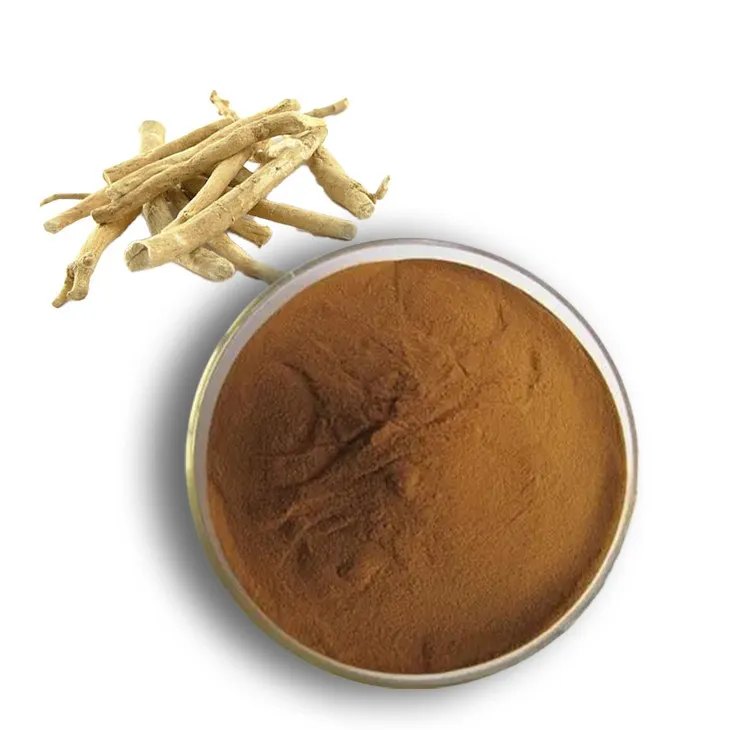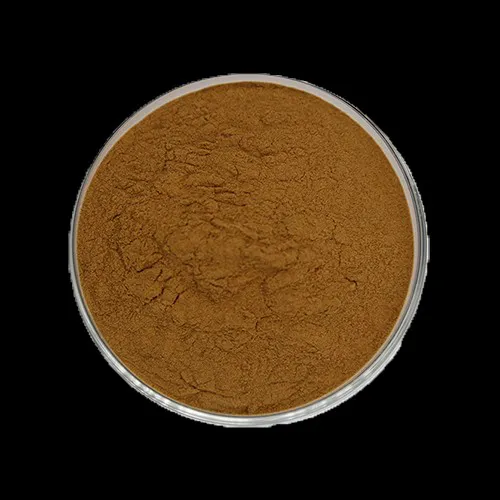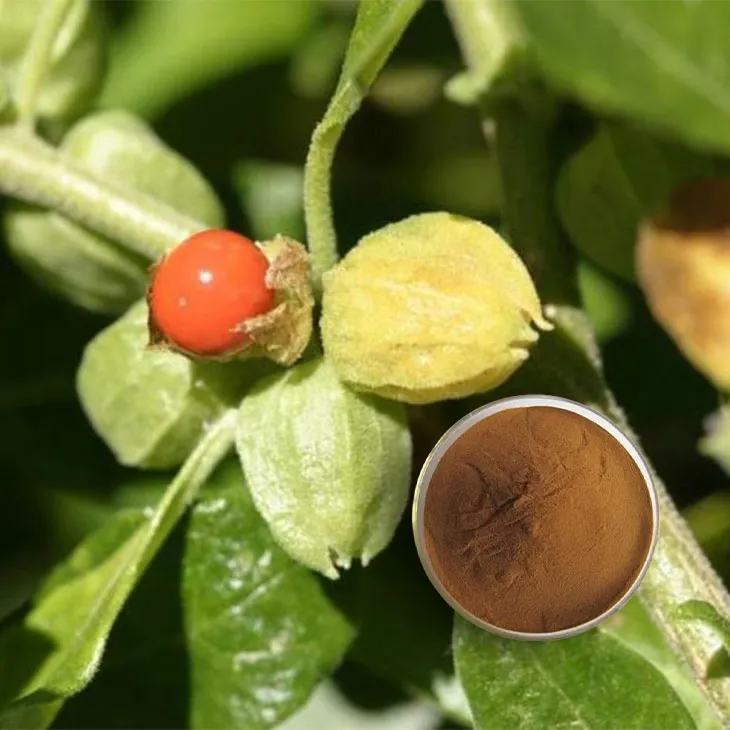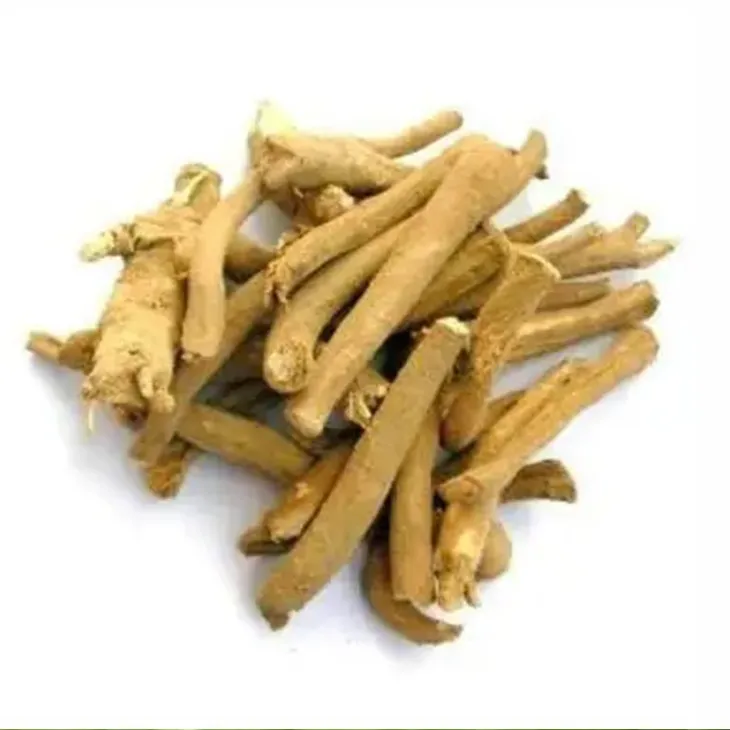- 0086-571-85302990
- sales@greenskybio.com
Wholesale Withania somnifera extract suppliers.
2024-11-30

1. Introduction to Ashwagandha Extract and Its Growing Market
Ashwagandha extract has emerged as a highly sought - after product in the global market due to its extensive range of health benefits. Derived from the Withania somnifera plant, it has been used in traditional medicine systems for centuries, particularly in Ayurveda. In recent years, modern scientific research has further validated its potential in areas such as stress reduction, enhancing immunity, and improving cognitive function. This has led to a significant increase in its demand across various industries, including pharmaceuticals, dietary supplements, and cosmetics.
As the market for Ashwagandha extract continues to expand, wholesale suppliers play a crucial role. They are the ones who bridge the gap between the producers of the raw material and the end - users, whether they are manufacturers of health products or consumers purchasing through retailers. Their operations have a direct impact on the availability, quality, and price of Ashwagandha extract in the market.

2. The Importance of Certifications
2.1 GMP (Good Manufacturing Practice) Certification
For wholesale Ashwagandha extract suppliers, GMP certification is of utmost importance. GMP sets out the guidelines for manufacturing processes to ensure that products are consistently produced and controlled according to quality standards. In the context of Ashwagandha extract, this means that every step of the extraction process, from the collection of the raw Withania somnifera plants to the final packaging of the extract, must adhere to strict regulations.
Manufacturing facilities with GMP certification are required to have proper sanitation and hygiene procedures in place. For example, the storage areas for the raw materials and the finished extract must be clean, dry, and free from contaminants. Workers are also expected to follow specific protocols to prevent cross - contamination during the production process. This not only ensures the safety and quality of the Ashwagandha extract but also gives confidence to customers, especially those in the highly regulated pharmaceutical industry.
2.2 ISO (International Organization for Standardization) Certification
ISO certification is another key factor for wholesale Ashwagandha extract suppliers. ISO standards cover a wide range of aspects related to quality management, environmental management, and occupational health and safety. For instance, an ISO - certified supplier is likely to have a more efficient and sustainable production process.
When it comes to Ashwagandha extract, ISO certification can indicate that the supplier is committed to reducing its environmental impact during the extraction process. This could involve measures such as using renewable energy sources in the manufacturing facility or implementing waste management strategies to minimize pollution. Additionally, ISO - related quality management systems ensure that the Ashwagandha extract meets international quality benchmarks, making it more acceptable in the global market.
Customers, especially those in the pharmaceutical and dietary supplement industries, rely heavily on these certifications when choosing a supplier. Without proper certifications, suppliers may find it difficult to enter into long - term contracts with major manufacturers or gain access to international markets.

3. Global Reach and Market Penetration
3.1 Understanding International Trade Laws
A successful wholesale supplier of Ashwagandha extract must have a deep understanding of international trade laws. These laws govern various aspects of cross - border trade, including import and export regulations, tariffs, and trade agreements. For example, some countries may have strict regulations regarding the import of herbal extracts to ensure their safety and efficacy. Suppliers need to be aware of these requirements and ensure that their products meet all the necessary criteria.
In addition, trade agreements between countries can also impact the market for Ashwagandha extract. For instance, free - trade agreements may reduce or eliminate tariffs on the import and export of the extract, making it more cost - effective for suppliers to enter new markets. On the other hand, changes in trade policies, such as the imposition of new tariffs or trade restrictions, can pose challenges for suppliers and may require them to adjust their business strategies accordingly.
3.2 Customs Requirements and Quality Standards in Different Regions
Each region has its own customs requirements and quality standards for Ashwagandha extract. In Europe, for example, the extract may need to meet specific purity levels and be free from certain contaminants to be approved for sale. Suppliers must be able to navigate these requirements and ensure that their products are compliant before exporting to European countries.
In the United States, the Food and Drug Administration (FDA) has regulations regarding dietary supplements that contain Ashwagandha extract. Suppliers need to ensure that their products are labeled correctly and meet all the safety and quality requirements set by the FDA. This includes providing accurate information about the ingredients, dosage, and potential side effects of the extract.
Understanding the cultural differences and market trends in various countries is also crucial for wholesale Ashwagandha extract suppliers.
3.3 Cultural Differences and Market Trends
In some Asian countries, such as India and Sri Lanka, Ashwagandha has been an integral part of traditional medicine for centuries. Here, there may be a higher demand for traditional forms of the extract, such as those prepared using age - old Ayurvedic methods. Suppliers may need to adapt their product offerings to meet the preferences of these markets. For example, they could offer Ashwagandha extract in powder form, which is commonly used in traditional Ayurvedic preparations.
In Western countries, Ashwagandha is often marketed as a natural supplement for stress relief and energy boost. The marketing and packaging of the extract in these markets may need to be more focused on these modern health benefits. For instance, products may be designed to appeal to a younger, health - conscious demographic, with sleek packaging and clear messaging about the stress - relieving properties of Ashwagandha.

4. Customer Service and Technical Support
4.1 Answering Customer Inquiries
Providing excellent customer service and technical support is a key differentiator for wholesale Ashwagandha extract suppliers. One of the important aspects of customer service is being able to answer customer inquiries regarding the product's properties, usage, and storage. For example, customers may ask about the optimal dosage of Ashwagandha extract for stress management or how to store the extract to maintain its potency.
Suppliers should have a well - trained customer service team that can provide accurate and detailed answers to these questions. This not only helps in building customer trust but also ensures that customers are using the Ashwagandha extract correctly, which is important for achieving the desired health benefits.
4.2 Technical Support for Product Formulation
Technical support can also include assistance with formulating products that contain Ashwagandha extract. Whether it is a new dietary supplement or a cosmetic product, suppliers can offer their expertise in ensuring the stability and effectiveness of the final product.
For example, in the case of a dietary supplement, suppliers can help manufacturers determine the appropriate combination of Ashwagandha extract with other ingredients to enhance its bioavailability or to target specific health conditions. In the cosmetic industry, they can provide advice on incorporating Ashwagandha extract into skincare products to take advantage of its antioxidant properties without affecting the product's texture or stability.

5. Conclusion
In conclusion, wholesale Ashwagandha extract suppliers have a multi - faceted role to play in the market. Their focus on quality, as demonstrated through certifications such as GMP and ISO, is essential for ensuring the safety and efficacy of the extract. Their global reach and ability to penetrate different markets, while complying with international trade laws, customs requirements, and understanding market trends, are crucial for the growth of the Ashwagandha extract business.
Moreover, their commitment to providing excellent customer service and technical support helps in building long - term relationships with customers and further strengthens their position in the market. As the demand for Ashwagandha extract continues to rise, wholesale suppliers will continue to be the pillars that support the growth and success of this vibrant market.
FAQ:
What are the essential certifications for wholesale Withania Somnifera Extract suppliers?
For wholesale Withania somnifera (Ashwagandha) extract suppliers, certifications like GMP (Good Manufacturing Practice) and ISO (International Organization for Standardization) are crucial. These certifications show the supplier's dedication to quality. They guarantee that the extraction facilities adhere to strict international standards in hygiene, production procedures, and quality control. Customers in the pharmaceutical and dietary supplement industries, in particular, depend on these certifications when picking a supplier.
How can wholesale Ashwagandha extract suppliers achieve global reach?
To achieve global reach, wholesale Ashwagandha extract suppliers need to be able to export their products to different countries while following the relevant import regulations. This demands a deep understanding of international trade laws, customs requirements, and quality standards in various regions. Additionally, they must be aware of cultural differences and market trends in different countries. For instance, in some Asian countries where Ashwagandha has a long history in traditional medicine, there might be a greater demand for traditional forms of the extract, while in Western countries, it is often promoted as a natural supplement for stress relief and energy enhancement.
What does customer service for wholesale Ashwagandha extract suppliers include?
Customer service for wholesale Ashwagandha extract suppliers includes being able to answer customer questions about the product's properties, usage, and storage. It also involves providing technical support, such as helping with formulating products that contain Ashwagandha extract. Whether it's a new dietary supplement or a cosmetic product, suppliers can use their expertise to ensure the stability and effectiveness of the final product.
Why is understanding market trends important for wholesale Ashwagandha extract suppliers?
Understanding market trends is important for wholesale Ashwagandha extract suppliers because it allows them to meet the specific demands of different regions. For example, different cultures may have different preferences for Ashwagandha products. In some Asian countries, traditional forms may be more popular due to its long - standing use in traditional medicine, while in Western countries, modern forms for stress and energy management may be more in demand. By being aware of these trends, suppliers can adjust their product offerings and marketing strategies accordingly to better penetrate the market.
How do wholesale Ashwagandha extract suppliers ensure product quality?
Wholesale Ashwagandha extract suppliers ensure product quality through obtaining relevant certifications such as GMP and ISO. These certifications ensure that the extraction facilities meet strict international standards regarding hygiene, production processes, and quality control. Additionally, they may also implement their own internal quality control measures to test the purity, potency, and safety of the extract at different stages of production.
Related literature
- The Medicinal Properties of Ashwagandha: An Overview"
- "Ashwagandha in Traditional and Modern Medicine: A Review"
- "Quality Control in Ashwagandha Extract Production"
- ▶ Hesperidin
- ▶ Citrus Bioflavonoids
- ▶ Plant Extract
- ▶ lycopene
- ▶ Diosmin
- ▶ Grape seed extract
- ▶ Sea buckthorn Juice Powder
- ▶ Fruit Juice Powder
- ▶ Hops Extract
- ▶ Artichoke Extract
- ▶ Mushroom extract
- ▶ Astaxanthin
- ▶ Green Tea Extract
- ▶ Curcumin
- ▶ Horse Chestnut Extract
- ▶ Other Product
- ▶ Boswellia Serrata Extract
- ▶ Resveratrol
- ▶ Marigold Extract
- ▶ Grape Leaf Extract
- ▶ New Product
- ▶ Aminolevulinic acid
- ▶ Cranberry Extract
- ▶ Red Yeast Rice
- ▶ Red Wine Extract
-
Bitter Melon Extract
2024-11-30
-
Hops Extract
2024-11-30
-
Scutellaria Extract
2024-11-30
-
Pomegranate Extract
2024-11-30
-
Yellow Pine Extract
2024-11-30
-
Citrus bioflavonoids
2024-11-30
-
Tormentil Extract
2024-11-30
-
Tongkat Ali Extract
2024-11-30
-
Eucommia Ulmoides Extract
2024-11-30
-
Tongkat Ali Extract Powder
2024-11-30





















